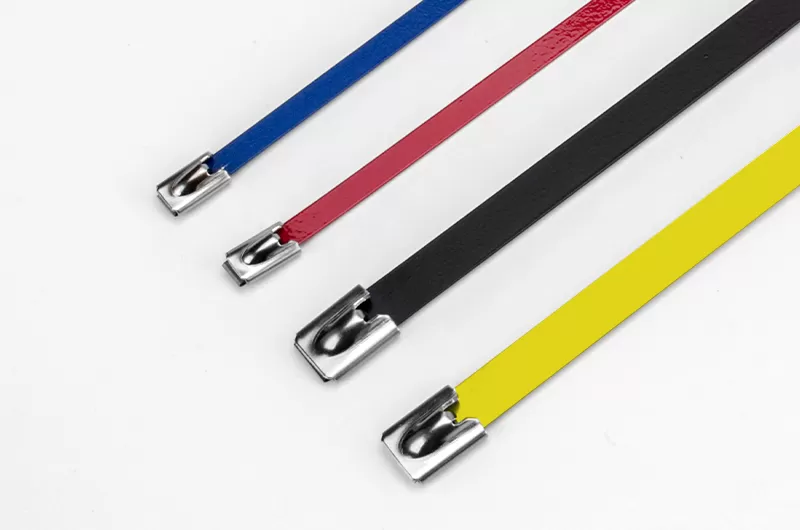Will Stainless Steel Cable Ties Rust?
Stainless steel cable ties are renowned for their durability and resistance to corrosion. However, many wonder if they are truly immune to rust. In this comprehensive guide, we delve into the question: Will stainless steel cable ties rust? We'll explore the factors influencing rust, methods to prevent it, and provide expert insights to help you make informed decisions.
Why Stainless Steel Cable Ties?
Stainless steel cable ties have gained popularity due to their exceptional strength and resistance to environmental factors. Unlike conventional ties, they offer longevity and reliability in harsh conditions.
Stainless steel is renowned for its corrosion-resistant properties, making it ideal for applications where exposure to moisture, chemicals, or extreme temperatures is common.

Understanding Stainless Steel Composition
Stainless steel comprises iron, chromium, and other alloying elements. The addition of chromium forms a passive oxide layer on the surface, protecting the steel from corrosion.
Factors Influencing Rust
Despite its resistance, stainless steel can rust under certain conditions:
Exposure to Saline Environments: Stainless steel can corrode in marine or coastal areas due to high salt content in the air.
Harsh Chemicals: Contact with corrosive substances can compromise the protective layer, leading to rust.
High Temperatures: Elevated temperatures can accelerate corrosion processes, especially in the presence of contaminants.
Preventing Rust
To ensure the longevity of stainless steel zip ties, consider the following preventive measures:
Regular Maintenance: Inspect cable ties periodically for signs of corrosion and replace damaged ones promptly.
Proper Installation: Ensure cable ties are installed correctly to prevent crevices where moisture and debris can accumulate.
Avoid Contaminants: Minimize exposure to harsh chemicals and pollutants that can compromise the protective layer.
Choose High-Quality Stainless Steel: Opt for reputable suppliers offering high-grade stainless steel cable ties for superior corrosion resistance.
FAQs
How long do stainless steel cable ties last?
Stainless steel cable ties can last for decades when properly installed and maintained. Their lifespan depends on environmental factors and usage.
Can stainless steel cable ties be used outdoors?
Yes, Heavy duty zip ties are suitable for outdoor applications due to their corrosion resistance. However, proper installation and periodic inspection are essential to ensure longevity.
Do stainless steel cable ties require special tools for installation?
While specialized tools are available for large-scale installations, stainless steel cable ties can be easily secured using manual or automatic tensioning tools.
Are stainless steel cable ties reusable?
In most cases, stainless steel cable ties are not reusable once tensioned. However, some designs feature a ball-lock mechanism that allows for limited adjustment and reuse.
Can stainless steel cable ties be used in high-temperature environments?
Yes, stainless steel cable ties are heat resistant and can withstand elevated temperatures. However, prolonged exposure to extreme heat may affect their performance.
Are there alternatives to stainless steel cable ties?
Yes, alternatives such as nylon cable ties are available. However, stainless steel cable ties offer superior strength and durability, especially in demanding environments.
Conclusion
In conclusion, stainless steel cable ties are highly resistant to rust, making them an ideal choice for various applications. By understanding the factors influencing rust and adopting preventive measures, you can maximize the lifespan and performance of stainless steel cable ties. Invest in quality products and adhere to proper installation practices to ensure reliability in challenging environments.
评论
发表评论